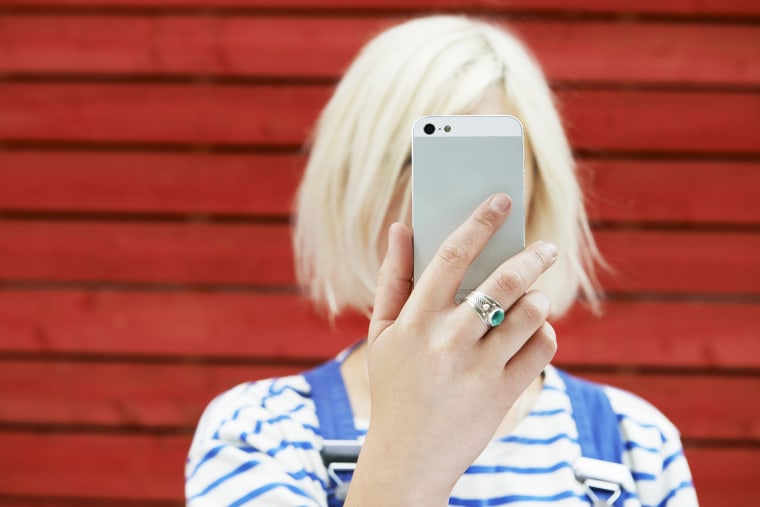Your favorite selfie filter could be contributing to a mental health crisis
The filters made available to users and invisible to viewers are creating an unrealistic portrait of what people look like. - Manipulating our own images has become such a part of our lives that there’s no going back now.
If you’ve ever aggravated someone — even a stranger — by asking them to take and re-take photos until you have one that’s "just right" to post on social media, the proliferation of filters and editing apps for your phone was probably an exciting development for you. The real problem, however, is that taking, looking at and sharing edited images of ourselves is fostering a fixation on how we look to others, to the point where it’s a mental health crisis unfolding before us.

Earlier this year, the Royal Society for Public Health in the UK released #StatusOfMind, a report on the impact of social media usage on mental health. They surveyed 1,500 youngsters aged 14 to 24, and asked 14 questions about their mental wellbeing and usage of YouTube, Snapchat, Facebook, Pinterest and Twitter.
Every single platform, other than YouTube, was associated with users' anxiety and depression. In fact, use of the two most image-centric platforms, Snapchat and Instagram, were ranked lowest for users’ well-being, particularly pertaining to bullying and “fear of missing out” (or FOMO) And in news that will not surprise anyone who has looked at the #thinstagram hashtag, Instagram scored poorly related to body image and anxiety.
The UK survey is hardly the first to document the link between social media usage and poor mental health. A 2014 survey from University of Pittsburgh’s Center for Research on Media, Technology and Health asked 1,787 young adults ages 19 to 32 about their mental health and how often they used 11 different social media platforms: Facebook, YouTube, Twitter, Google Plus, Instagram, Snapchat, Reddit, Tumblr, Pinterest, Vine and LinkedIn.
''The filters made available to users and invisible to viewers are creating an even less realistic portrait of what other people and their lives looks like, to the detriment of some.''
They found that using seven or more platforms was correlated with triple the risk of having anxiety or depression, compared with those who used only one or two. (If seven platforms sounds like a lot, look at that list and ask yourself how many accounts you have; I have nine.)
Manipulating our own images has become such a part of our lives that there’s no going back now; even if Snapchat or Instagram removed its filters, other apps would simply take their place. The best we can hope for is for apps to be more transparent about the manipulation of the images they're helping to disseminate, for the health (and, perhaps ultimately the safety) of their own users
Jessica Wakeman is a writer and editor in Brooklyn. She has written for Glamour, Bust, Rolling Stone, Nymag.com The Cut and numerous other publications.
No comments:
Post a Comment